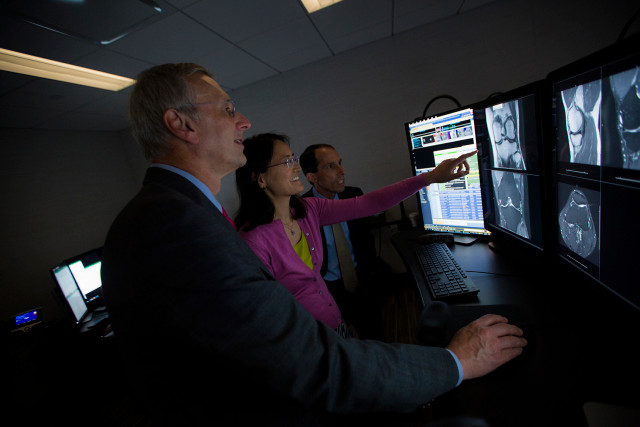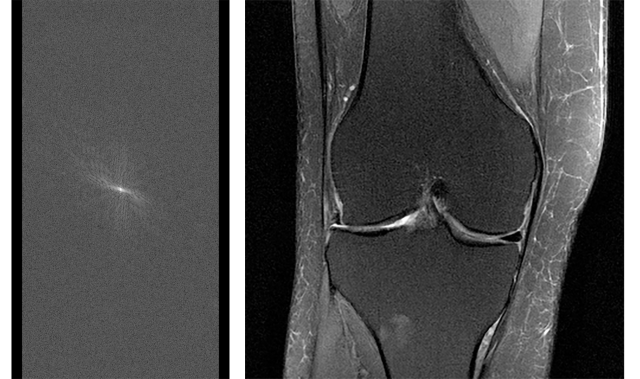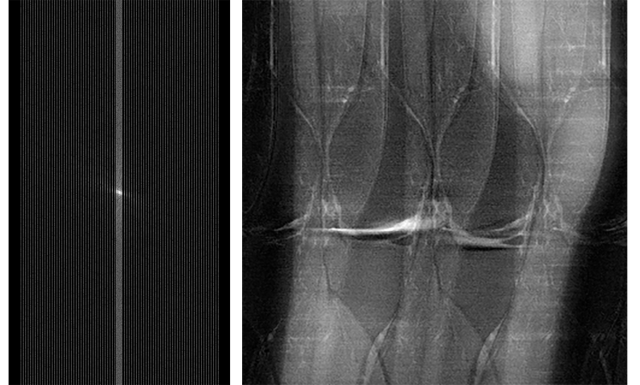Facebook will research MRI with AI

The School of Medicine at New York University plans to speed up the MRI scan at least 10 times. The Facebook group of artificial intelligence researchers (FAIR) will help them in this with the help of machine learning technologies.
The project is called fastMRI . Doctors will provide for him a dataset of 3 million images of the brain, knees, and liver, collected from 10,000 patients, and Facebook will provide their machine learning workouts for training the algorithm. According to the idea, the MRI will collect only part of the information, and the trained neural network will fill the gaps.
Acceptable for real use, the researchers plan to publish within a year under a free license.
The MRI device acts on the tissue with electromagnetic radiation and captures the release of energy in the form of digital data, from which images are then formed - “two-dimensional slices”. The process can last from 15 minutes to an hour. The more data you need to collect, the longer it takes.
A person at this time must lie and not move. For some patients — for example, small children, people who are claustrophobic or who suffer from lying down — this can be a problem.
The first attempts to accelerate the taking of a picture were undertaken by researchers at the School of Medicine in 2015. Scientists have suggested that the time in the device can be reduced by collecting only part of the data, and filling the remaining gaps with the help of trained AI on neural network algorithms.
MRI machines are generally quite flexible in terms of the amount of data needed to produce a result. But after the first attempts, the researchers came to the conclusion that to recreate high-quality images, even less data is needed than they expected.
The difficulty is that when, when processing photos and videos, neural network algorithms fill gaps in a similar way, drawing pixels based on the data, the assumptions and deviations are not critical, at least in matters of life and death. But in analyzing MRI scans, every millimeter can affect the diagnosis.

On the left of this image is a complete set of raw data collected by MRI. And on the right is a picture of the knee, which is obtained from them.

And on this - a partial data set and a snapshot of the knee, obtained using neural network algorithms at this stage.
In addition to questions with accuracy of reconstruction, the project raises some ethical issues.
Solving similar problems with computer vision — only in other areas — was done by Facebook engineers. They say that participation in this project is a good way for them to put technology into practice. But the collection of personal data by companies that earn their monetization is a particularly sensitive issue lately. Especially when it comes to medical data.
Researchers state that there are no information about patients' personalities, names and medical information in the datasets - only the images themselves and the source data from which these images were obtained. Facebook representatives also claim that the project does not use the data that the company collects itself.
As reportedFacebook representative VentureBeat, the results should wait for a year. As soon as the necessary progress has been made, the researchers will publish to the public all the models, metrics and datasets on which they trained the AI so that they can be used by other clinics.
